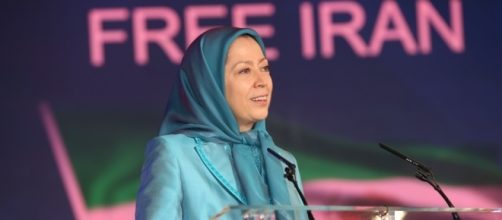The relationship between the United States and #Iran has taken another turn, as the Trump administration designated the Islamic Revolutionary Guard Corps (IRGC) as a terrorist organisation. On Friday, President Trump also called for tougher sanctions against the IRGC. This is clearly a move by this administration to turn attention to what President Trump called “Iran’s continued dangerous and destabilising behaviour.”
“I am authorising the Treasury Department to further #sanction the entire Islamic Revolutionary Guard Corps for its support for terrorism and to apply sanctions to its officials, agents, and affiliates,” said #Trump. “I urge our allies to join us in taking strong actions to curb Iran’s continued dangerous and destabilising behaviour.”
He also noted that Iran and the IRGC have played a role in spreading terrorism throughout the region and continuing to destabilise countries throughout the Middle East.
With the United States choosing to go the route of sanctions, the Trump administration is sending a clear signal to the international community that Iran’s behaviour is not acceptable.
Iranian resistance position
Maryam Rajavi, President-elect of the National Council of Resistance of Iran (NCRI), welcomed the new U.S. policy to “condemn the IRGC’s gross violations of Human Rights” in Iran. She also welcomed the designation of the IRGC as a terrorist entity under Executive Order 13224 and described it as an inevitable, necessary step for regional and global #peace and security.
The behaviour at the centre of the issue is focused on Iran's ballistic missile tests and active support of various militias throughout the Middle East.
Its subtle and overt influence is being felt in country after country throughout the region.
“The IRGC is the Iranian supreme leader’s corrupt personal terror force and militia. It has hijacked large portions of Iran’s economy and seized massive religious endowments to fund war and terror abroad. This includes arming the Syrian dictator, supplying proxies and partners with missiles and weapons to attack civilians in the region,” said Trump.
Saudi Arabia has continued to support efforts to rein in the growing influence of Iran, Meanwhile, there are concerns that Iran’s refusal to allow International Atomic Energy Agency (IAEA) inspectors into their military facilities indicates they are skirting the Joint Comprehensive Plan of Action (JCPOA) and continuing to pursue nuclear weapons.
Prospects
The result is that while it appears that Iran is in compliance with the 2015 nuclear agreement, there are many questions about what they are doing behind closed doors. Numerous agencies have also focused on the fact that the JCPOA did not even address human rights abuses and the oppressive measures in place to keep alternative political voices silent.
The NCRI continues to point out that those in the international community who believe that Iran’s regime can be made to change or to address these issues are sadly mistaken. Even the idea of the regime being moderate seems to be just a ruse to get the international community to give concessions and lift the economic sanctions that have been in place for years.
The statement released by Rajavi acknowledged that under the regime’s supreme leader Ali Khamenei, the regime “oppresses its people, abuses their rights” and “exports violence, destabilises its neighbours, and sponsors terrorism abroad,” is a recognition of the illegitimacy of the Iranian regime.
According to Rajavi, a firm policy by the international community is long overdue.
The only way to create real change in the region is through a change from a theocratic dictatorship to a truly democratic alternative. The NCRI has a 10-point plan for Iran and it involves addressing the human rights issues that are currently part of the daily life of Iranians.


